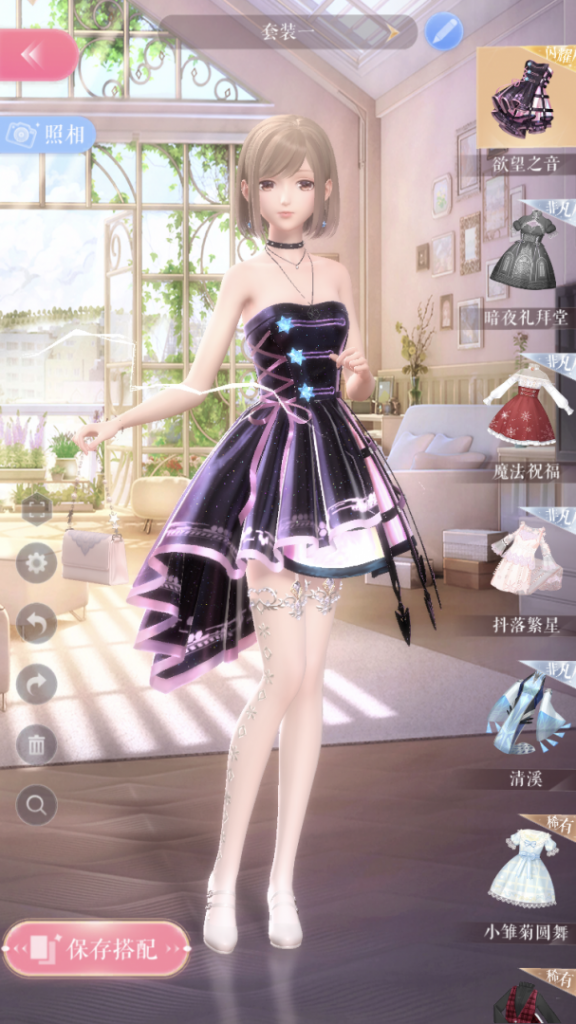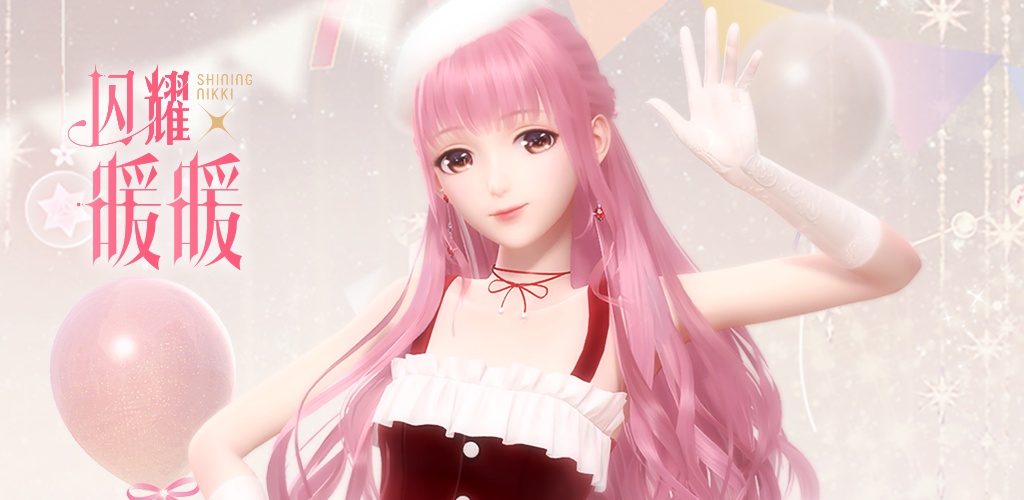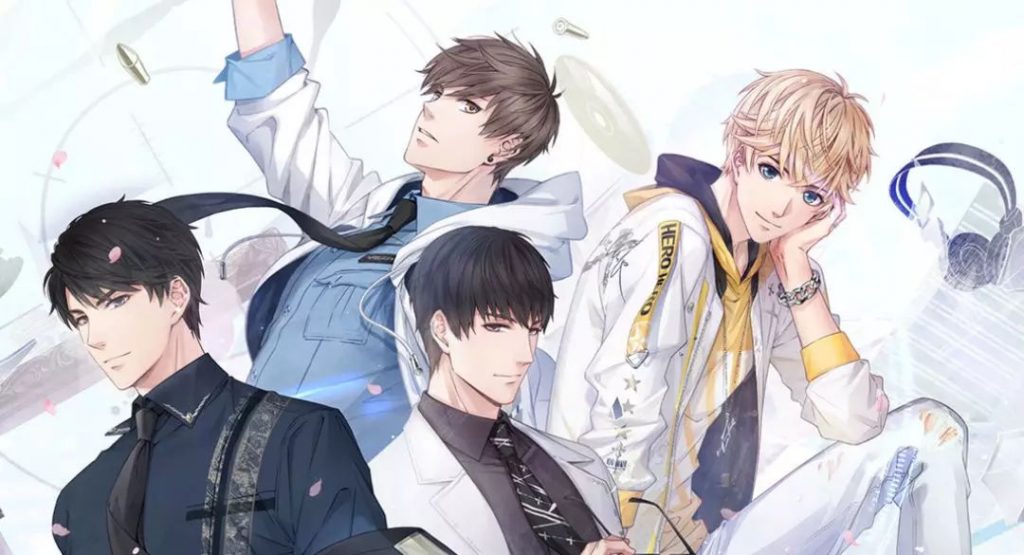While Tencent releases may continue to dominate the gaming headlines coming out of China in 2019, imaginative titles explicitly aimed at female users are quickly gaining mainstream attention as they forge their own position in the vast market.
China is home to more gamers than any other country in the world, and one-third of them play on their phones. The transformation of female-oriented gaming from a niche interest into a mainstream segment is something that industry players can no longer ignore, especially when thinking about monetization.
Since the second half of 2017, mobile dress-up games and dating simulators have surged in popularity in China. The latest dress-up hit is “Shining Nikki,” which racked up 44 million downloads on local app stores within a month of its August 6 launch, according to estimates from the analytics firm Qimai.
Choosing the most in-style outfit for your virtual avatar or wooing a digital boyfriend are not new or unusual concepts in modern gaming. However, these aspects are typically intended to complement the bigger picture and make content more immersive. A rare sparkling golden mantle in a multiplayer game can help the wearer stand out, regardless of his or her level of skill, while a well-written love story can inject life into role-playing game (RPG) characters.
However, female-focused games opt to focus purely on romantic aspects or making virtual characters look good. In contrast to the multiplayer online battle arena (MOBA) and first-person shooter (FPS) genres, which appeal mainly to male audiences, these new emerging titles target the other half of China’s population.
Coupled with the popularization of smart devices and the broader acceptance of gaming in recent years, these female-oriented games are creating a market segment of their own, analysts said. But like any rapidly expanding market, targeting female players is not without its issues and risks.
Stylish outfits and loot boxes
“Shining Nikki” is best described as a 3D dress-up RPG. Players control a young girl named “Nikki” and compete with AI-controlled characters in “styling battles,” in which the side with the highest score wins. Users are tasked with pairing clothing and accessories according to attributes such as “elegant,” “cute,” “mature,” and “pure,” to fit the theme of the battle and achieve a higher score.
Just like in other RPGs, “Shining Nikki” players earn desired items either by completing quests or spending real money on loot boxes. Clothing items are available at different levels of rarity; the less common items grant better stats. Players can also boost their score by using “phantoms of designers,” which are on upgradeable cards of varying stats and levels of rarity.
Once players progress far enough into the main story—traveling back in time to prevent a disastrous future with non-stop “styling battles”—the battle arena feature is unlocked, enabling users to participate in higher levels and generally more demanding matches with their fellow players.

Clothing such as dresses in “Shining Nikki” have different rarities and stats. (Image Credit: TechNode)
As the third installment in the “Nikki” franchise, “Shining Nikki” is the first to adopt full 3D graphics, featuring highly-detailed character and clothing models, as well as realistic physics. When users rotate their character, the sleeves and skirt of her dress move dynamically.
Relationship simulator games tend to feature less sophisticated graphics, but their stories and systems are no less complex. In one of the genre’s best-selling titles, “Love and Producer,” players take on the role of a female producer trying to revive a media company on the brink of bankruptcy. They simultaneously develop romantic relationships with four handsome male characters: a genius scientist, a special forces officer, a corporate CEO, and a superstar who is also a genius hacker. Each has his own superpower, such as flight and time-manipulation.
While the plot in the early chapters of the game is identical to that of a corny romance novel, the story develops darker themes as it starts to integrate conspiracy theories, higher dimensions, and time travel.
To progress in “Love and Producer,” players need to collect and upgrade “bonding cards” of varying levels of rarity to produce TV shows with traits such as “affinity” and “creativity.” “Bonding cards” consist of artwork featuring the four male characters, with the rarest ones requiring users to pay considerable sums of real-world money to acquire and upgrade them.
Players can also collect special items and complete certain quests to unlock additional dating events, which generally come in the form of voiced artwork, as well as text message conversations with the male characters.
Although most female-oriented games are free, players say that in some cases spending money is unavoidable if they wish to enjoy a semi-decent gaming experience. “Love and Producer,” for instance, features timed events that reward users with extra rare “bonding cards.” The system gives users a few free event passes, but to complete the mission, users have to spend real money. “Try the events and you’ll find that there is no way you can get the final reward with just the free passes,” said Zhu Xiaoyu, a 24-year-old player of “Shining Nikki” and its 2D predecessor “Miracle Nikki.”
Less-competitive gaming
Compared to more hardcore mobile games such as MOBA title “Honour of Kings” and FPS game “Peacekeeper Elite,” which require rapid reaction time and strategic thinking, female-oriented releases are generally far less demanding in terms of focus and are relaxing to play, several female players told TechNode.
“You don’t need to think when playing female-oriented games,” said Yu Xueqi, a 25-year-old Ph.D. student. “Other titles stimulate your brain, but games like ‘Shining Nikki’ are just sweet, soft, and soothing.”
Although most female-oriented tiles have modes where users can battle in matches with each other, Yu told TechNode that she feels that competition is not central to the game, and she has never felt the pressure to be better than other players.
According to the players we interviewed, dress-up games also provide a wider and more aesthetically appealing array of clothing as compared with mainstream titles that allow users to customize their characters’ appearances. “You can also change how your character looks in ‘Peacekeeper Elite,’ but the skins are just ugly. The beautiful clothes in the ‘Nikki’ series are the primary reason why I play them,” said Zhu.
As for relationship simulators, the appeal for female players lies in the personas of the virtual boyfriends. In the App Store review section of “Love and Producer,” for instance, a user with the handle “Linxi uses the same name for every game” explained her preference for one of the main male characters.
“My favorite is Zhou Qiluo. He can switch from being sweet to cool to serious at any time. His naturally curly blond hair and clear blue eyes are also super cute,” the user commented. Another user named “poolijbsec” was more straightforward, writing “Xu Mo is so hot,” in reference to another male character in the game.
In January 2018, a group of fans took their affection for “Love and Producer” characters to another level. They reportedly spent RMB 250,000 (around $39,000 at the time) to hang an LED banner on a skyscraper in Shenzhen to celebrate the birthday of Li Zeyan, their in-game boyfriend.
While female gamers make up the lion’s share of players of such titles, they also attract some male users, who appear more interested in the competitive aspect. “I find the ranking system in ‘Shining Nikki’ pretty interesting. Most people did not pay much attention to the player-versus-player system when the game first launched, so I was able to quickly rise high in the rankings and receive some nice rewards. It felt pretty awesome,” said 21-year-old student Luo Yuxuan. “I didn’t find any of the clothing particularly attractive, but for the sake of having a full collection, I would try to get them all.”
A booming industry
Female-oriented games aren’t new. Paper Games, the developer of “Shining Nikki” and “Love and Producer,” has been developing dress-up games for mobile platforms since as early as 2013, but the market segment has remained relatively niche for several years. During this period, several female-focused titles from Paper Games and several other developers successfully secured a user base, says Liu Jiehao, an analyst at research firm iiMedia.
Female-oriented games went mainstream in China in 2017, with the help of viral titles such as “Love and Producer” and ”Travel Frog,” a game in which players help a cute amphibian prepare for trips by providing food and money. The category hit a market size of RMB 43.1 billion that year, according to a report from game research firm Gamma Data. Relationship simulators like “Love and Producer” have also helped the market better to define the idea of games for women, Liu said.
This new emerging market is expected to generate RMB 53.1 billion in revenue in 2019—and to achieve RMB 56.8 billion in 2020, according to the Gamma Data report. Female-oriented mobile titles are expected to drive the growth, bringing in an estimated RMB 40.2 billion next year, or 70% of the segment’s total revenue.
Analysts attribute the recent growth to growing interest among female gamers, coupled with greater purchasing power, as well as a greater emphasis on female players from the perspective of gaming companies.
“When the development of an industry reaches a certain stage, companies will start to experiment in more niche market segments,” Liu told TechNode. “As an essential part of the gaming market, female users and their needs will naturally attract the attention of developers,” he added.
Room for smaller players
In contrast to mainstream genres, dominated by industry giants Tencent and NetEase, the landscape for female-oriented games is less hostile to small- and medium-sized developers, analysts said.
Paper Games, for instance, remained a small studio for the first three years after it was founded; only recently did they expand from a medium-sized company of fewer than 500 employees to more than 600 staff. Happy Elements, the developer of the match-three title “Anipop” and male idol mobile game “Ensemble Stars,” was also a mainstay of the medium-sized tier until recently.
However, this doesn’t mean that barriers to entry in the market are low. “Compared with traditional mainstream genres that emphasize gameplay design and numerical setup, female-oriented games can be more demanding about art design and storytelling,” Liao Xuhua, an analyst with research firm Analysys, told TechNode. “The market could become increasingly competitive as the experience of existing players grows,” he added.
Player gripes
The rise of female-oriented games is not without its issues. Several well-known titles, such as Paper Games’ “Love and Producer” and NetEase’s “Yujian Love” have large numbers of what appears to be bot-generated positive reviews on their respective Apple China App Store pages, with some of them making it to the “most helpful reviews” section. Based on TechNode’s observations, a considerable number of fake reviews for “Love and Producer” were posted around the game’s launch in December 2017, possibly to create hype for the title.
Many players of female-oriented games have left reviews on app stores to complain about the overly aggressive monetization strategies of certain titles—such as Paper Games’ more recent releases and Tencent’s “Shiwuyu.” “Every event can cost several hundred [yuan]. Could you people be less greedy?” reads one comment on the “Love and Producer” App Store page from a user with the handle “You love to talk about this.” Many users have also expressed dissatisfaction that they cannot progress in the story if they don’t spend enough money on in-game purchases or grind away on repetitive gameplay.
“Shining Nikki” has been called out for trying to entice male users with inappropriate advertisements on platforms such as Weibo, the video streaming site Bilibili, and Q&A platform Zhihu.
One game ad frequently seen on different platforms reads: “Games that guys are addicted to! Choose whichever clothing and figure you want. Do you prefer cute lolis or domineering ladies?” Other ads employ slightly different phrasing but convey similar messages. “A game that all the guys around you are playing! Mature women, young girls, stylish girls …which style do you prefer?” a video ad on Zhihu says.
Some ads go even further by using sexually suggestive phrases such as “Raise your daughter until you are physically exhausted every day. This is the game that real men should play!” The slogan uses a Chinese phrase that, when understood in relation to the concept of “real men,” often means fatigue from excessive sexual activities.
“I support Paper Game’s effort to attract male users … but how would this type of phrasing come across to people who treat Nikki as their imaginary daughter?” one anonymous user commented on Zhihu.
– This article originally appeared on TechNode.








